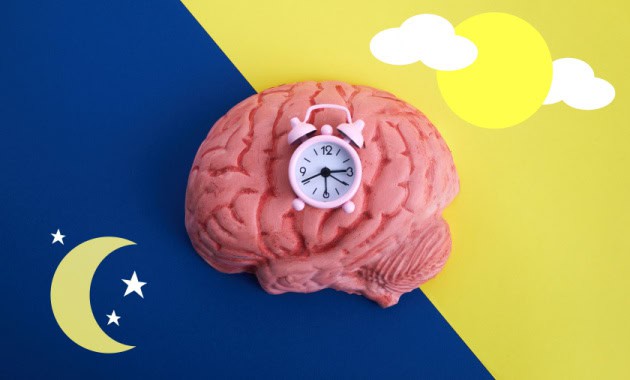
Ages ago, all humans would wake with the rising sun and sleep around sunset. That is how our body’s clock was designed to operate. However, the invention of electricity, though a boon for humankind, has blurred the line between day and night. The night of this era doesn’t appear to be a night at all!
This has left the human body perplexed and disrupted its internal biological clock, also known as the circadian rhythm. This rhythm regulates our daily sleep and wakefulness cycle, metabolism, hormonal balance, and various bodily and behavioral processes. Dysregulation of this rhythm can result in fatigue; lack of daytime alertness; insomnia; mental health issues like anxiety, depression, etc.; and many long-term health complications such as obesity, diabetes, cancer, etc.
But is it possible to reset your body clock? The answer is YES. With some changes in daily habits, it is achievable.
In this article, we will discuss 10 practical and easily doable ways to improve and regulate your internal clock.
1. Bask in the morning sun: Exposure to the early morning sunlight, even for 15-20 mins, boosts melatonin production, a hormone that is responsible for our sleep wake-up cycle and regulates our circadian rhythm.
2. Limit naptime: Napping in the afternoon can disrupt your sleep schedule and internal clock. Though small naps of 10-20 mins can refresh you, taking a longer nap is more likely to make you fall into a deep sleep and may become a hurdle to a good night’s sleep.
3. Stick to a proper eating schedule: Circadian rhythm regulates our hunger, digestion, and metabolism processes. Some studies have found that unusual eating times, especially eating late at night, can disrupt the circadian system and might lead to unhealthy consequences.[1]
4. Make exercise a part of your daily routine: Exercising early in the morning for at least 30 mins on most days can regulate your internal clock[2]. It helps you feel alert and awake during the daytime. However, avoid strenuous physical activity at night as this stimulation can confuse your body and make it harder for you to fall asleep.
5. Follow a sleep routine: Sleeping and waking up at the same time each day helps a great deal in falling asleep faster and improving the overall quality of sleep. Try to meditate, dim the lights, and sleep in a cool room for a blissful sleep.
Explore our widest range of sleep aid products and enjoy the benefits of undisturbed sleep.
6. Avoid electronic devices before bedtime: Though watching a late-night show or scrolling through social media can be tempting at night, the blue light emitted from these electronic devices disrupts the natural production of melatonin and can throw off the body’s circadian rhythm. Therefore, it is best to avoid exposure to screens for at least 1 or more hours before going to bed.[3]
7. Keep caffeine and alcohol at bay: Caffeine and alcohol are strong stimulants and if ingested during late evening hours, can cause trouble in falling asleep, thereby disrupting the internal clock. Therefore, it is best to avoid their intake, especially if you face sleep issues.
8. Relish bedtime teas: Sleep-inducing teas or bedtime teas, such as magnolia tea, lavender tea, low-caffeine green tea, and chamomile tea, are popular natural remedies for promoting relaxation and better sleep. These teas are known for their calming properties that can help reduce stress and anxiety and promote sound sleep.
9. Try melatonin supplements: Melatonin, a naturally-produced hormone, regulates our sleep-wake cycle. If you face difficulty falling asleep, consult your healthcare professional to benefit from melatonin supplements.
Browse for melatonin supplements here
10. Seek help if needed: Taking an expert’s opinion is important if your circadian rhythm has gone wrong, is affecting your overall health, and lifestyle tips do not seem to be helping out.
Get guidance from our trusted and qualified doctors. Consult now
Remember!
Our circadian cycle has been disrupted by the dangers of modern life, such as working night shifts, eating late at night, chronic stress, lengthy travel, and excessive use of electronic gadgets.
Try to adhere to the advice given above to adjust your body clocks and move closer to your healthiest selves.
(The article is written by Namita Singh, Team Leader, and reviewed by Dr. Nitika Makhija, Manager, Clinical Health & Content)
References
1. Lopez-Minguez J, Gómez-Abellán P, Garaulet M. Timing of Breakfast, Lunch, and Dinner. Effects on Obesity and Metabolic Risk. Nutrients. 2019 Nov 1;11(11):2624. https://www.ncbi.nlm.nih.gov/pmc/articles/PMC6893547/
2. Thomas JM, Kern PA, Bush HM, McQuerry KJ, Black WS, Clasey JL, Pendergast JS. Circadian rhythm phase shifts caused by timed exercise vary with chronotype. JCI Insight. 2020 Feb 13;5(3):e134270. https://www.ncbi.nlm.nih.gov/pmc/articles/PMC7098792/
3. Technology in Bedroom. Sleep Foundation. https://www.sleepfoundation.org/bedroom-environment/technology-in-the-bedroom